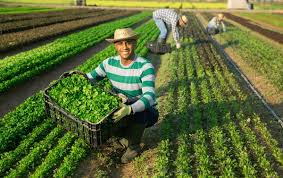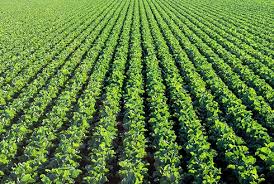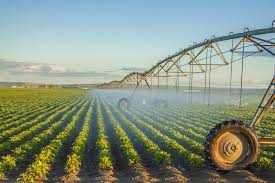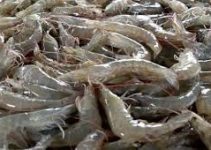Contents
Crop production plays a pivotal role in sustaining the global food supply, ensuring economic stability, and promoting agricultural development. As the world population continues to grow, the demand for efficient and sustainable crop production methods has become more pressing. This article explores the significance of crop production, current challenges, advancements, and the role of sustainability in shaping the future of agriculture.
Understanding Crop Production

Crop production encompasses the cultivation of plants for food, fiber, fuel, and other uses. It includes a wide range of activities, such as soil preparation, planting, irrigation, pest control, and harvesting. Farmers grow various types of crops, categorized as food crops (e.g., grains, vegetables, and fruits), industrial crops (e.g., cotton and jute), and bioenergy crops (e.g., corn and sugarcane).
The choice of crops depends on several factors, including soil type, climate, and market demand. For example, rice is predominantly grown in Asia due to its warm, humid climate, while wheat thrives in temperate regions.
Challenges in Crop Production
Crop production faces numerous challenges that threaten food security and agricultural sustainability. These challenges include:
- Climate Change: Increasing temperatures, erratic rainfall patterns, and extreme weather events disrupt planting and harvesting schedules. These changes also exacerbate the spread of pests and diseases.
- Soil Degradation: Intensive farming practices deplete soil nutrients and reduce its fertility. Over-reliance on chemical fertilizers further exacerbates soil degradation, leading to long-term productivity loss.
- Water Scarcity: Agriculture is a major consumer of freshwater resources. In many regions, water shortages limit irrigation and affect crop yields.
- Pest and Disease Pressure: The rise of pesticide-resistant pests and plant diseases poses a significant threat to crop health. This issue demands innovative pest management solutions.
- Population Growth: The growing global population increases the demand for food production, putting immense pressure on agricultural systems to produce more with fewer resources.
Advancements in Crop Production
The agricultural sector has embraced technological advancements to address challenges and enhance productivity. Key innovations include:
- Precision Agriculture: Precision farming uses technologies like GPS, drones, and sensors to monitor and manage fields with high accuracy. This approach optimizes resource use, minimizes waste, and increases crop yields.
- Genetically Modified Crops (GMOs): Genetic engineering has enabled the development of crops with enhanced resistance to pests, diseases, and environmental stressors. These crops also exhibit improved nutritional profiles.
- Vertical Farming: Vertical farming involves growing crops in stacked layers, often in controlled indoor environments. This method conserves space and water while providing year-round crop production.
- Smart Irrigation Systems: Advanced irrigation systems, such as drip irrigation and automated sprinklers, ensure efficient water use. These technologies help maintain consistent soil moisture levels, boosting crop health.
- Crop Monitoring Applications: Mobile applications and software provide real-time data on crop health, soil conditions, and weather forecasts. Farmers can make informed decisions based on this data.
The Role of Sustainable Practices

Sustainability has become a central focus in modern crop production. Adopting sustainable practices ensures long-term productivity while minimizing environmental impacts. Key sustainable practices include:
- Crop Rotation: Rotating crops prevents the depletion of specific soil nutrients and disrupts pest life cycles, reducing dependency on chemical inputs.
- Organic Farming: Organic farming avoids synthetic fertilizers and pesticides, promoting natural methods like composting and biological pest control. This approach enhances soil health and biodiversity.
- Agroforestry: Integrating trees into crop production systems provides multiple benefits, such as improved soil fertility, reduced erosion, and enhanced carbon sequestration.
- Conservation Tillage: Reduced tillage methods help retain soil structure, moisture, and organic matter, mitigating soil erosion.
- Integrated Pest Management (IPM): IPM combines biological, cultural, and chemical methods to manage pests in an environmentally friendly manner.
Government and Policy Support
Governments play a crucial role in supporting crop partaitogel production through policies, subsidies, and research initiatives. Key areas of focus include:
- Research and Development: Funding agricultural research enhances innovation in crop varieties, pest control methods, and sustainable practices.
- Farmer Training Programs: Training and education empower farmers with the knowledge and skills needed to adopt modern agricultural techniques.
- Subsidies and Financial Support: Financial incentives encourage farmers to invest in advanced technologies and sustainable practices.
- Trade Policies: Promoting fair trade policies ensures farmers receive equitable compensation for their produce.
The Impact of Crop Production on Global Economy

Crop production significantly contributes to the global economy, particularly in developing nations where agriculture is a primary source of livelihood. Exporting crops generates revenue, while local markets benefit from job creation and food availability. Additionally, industries such as textile, biofuel, and pharmaceuticals rely heavily on agricultural produce.
However, the sector is vulnerable to market fluctuations, geopolitical conflicts, and climate-related disruptions, which can lead to economic instability.
Future Prospects of Crop Production
The future of crop production hinges on balancing productivity with sustainability. Emerging trends and strategies include:
- Climate-Resilient Crops: Developing crops that can withstand extreme weather conditions and adapt to changing climates will be critical.
- Digital Agriculture: The integration of artificial intelligence, machine learning, and big data analytics will revolutionize crop management and forecasting.
- Carbon Farming: Practices that capture and store carbon in agricultural soils will play a key role in combating climate change.
- Global Collaboration: International cooperation is essential to share knowledge, technology, and resources for improving crop production worldwide.
Conclusion
Crop production remains the foundation of global agriculture, directly influencing food security, economic development, and environmental sustainability. Addressing challenges through innovation, sustainable practices, and supportive policies is essential for meeting the needs of a growing population. As technology and research continue to evolve, the future of crop production holds immense potential to transform agriculture into a more resilient and sustainable industry.



